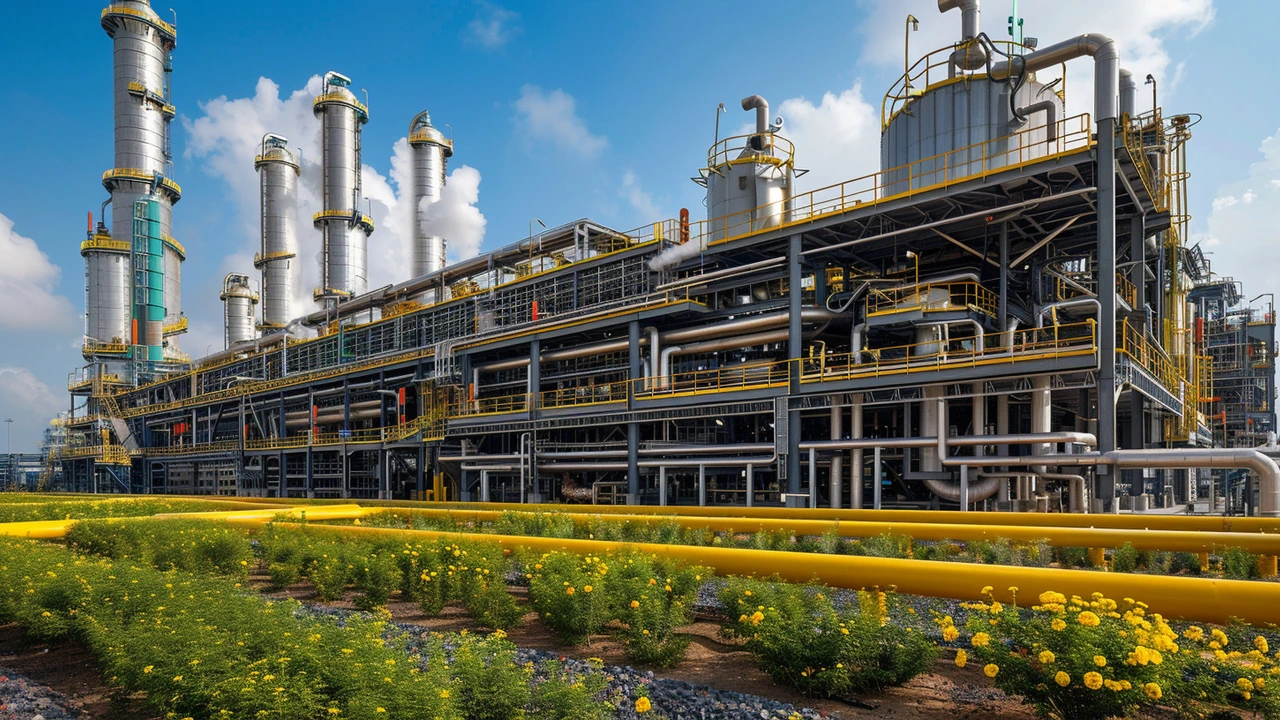Lagos Economy Overview
Lagos is Africa's largest city and Nigeria's economic engine. Every day you see new offices, market stalls, and tech hubs popping up along the coastline. The city generates about half of Nigeria's GDP, so what happens here affects the whole country.
When you look at the numbers, Lagos' GDP grew by roughly 5 % last year despite global slowdowns. That growth comes from a mix of old‑school trading and new‑school digital services. For anyone living in or visiting Lagos, understanding these trends helps you spot job chances, investment ideas, and everyday cost changes.
Top Sectors Driving Growth
Trade and logistics still lead the pack. The Lagos ports handle the bulk of West Africa's import‑export traffic, so shipping companies, freight forwarders, and warehouse operators constantly hire staff. If you have experience in customs paperwork or vehicle maintenance, there are many opening in the port districts.
Finance is another powerhouse. Banks, fintech startups, and money‑transfer services cluster in Victoria Island and Ikoyi. Mobile payments rose by over 30 % last year, and fintech firms are raising millions of dollars to expand services across Africa. A background in coding, data analysis, or customer support can land you a role in one of these rapidly scaling firms.
Entertainment and creative media also pull big crowds. Nollywood studios, music producers, and fashion designers find Lagos audiences hungry for fresh content. The city’s film festivals and fashion weeks draw sponsors, giving freelancers and small agencies a chance to earn a living doing what they love.
Finally, the construction boom reshapes the skyline. New residential towers, office blocks, and road projects need engineers, architects, and laborers. The government’s push for affordable housing means even entry‑level workers can find stable wages.
Crypto and the Future of Work in Lagos
Crypto is no longer a fringe hobby in Lagos; it’s becoming a mainstream tool for payments and investment. Local businesses accept Bitcoin and stablecoins for everything from groceries to rent. That acceptance opens doors for people who understand how wallets, exchanges, and blockchain contracts work.
One practical way to get involved is by offering crypto‑payment integration services to small shops. Many shop owners want to attract younger customers but don’t know the tech. Teaching them how to set up a QR code payment or a simple smart‑contract invoice can turn a side gig into a steady income stream.
Another option is to join one of Lagos' many blockchain meetups. These gatherings let you network with developers, investors, and regulators. Fresh connections often lead to freelance gigs, mentorship, or even seed funding for a new idea.
For job seekers, keep an eye on listings that mention “DeFi,” “smart contracts,” or “crypto compliance.” Companies in the fintech space are hiring for roles that blend traditional finance knowledge with blockchain skills. Even a short online course in blockchain basics can boost your resume.
Overall, Lagos’ economy thrives on a blend of heavy‑industry hustle and digital innovation. Whether you are a trader, a creative, a construction worker, or a crypto enthusiast, the city offers real pathways to earn, grow, and contribute. Stay curious, keep learning, and use the city’s momentum to push your career forward.
Fire Disrupts Operations at Dangote Refinery in Lagos
A fire incident struck Dangote Refinery in Lagos' Lekki free trade zone. The cause remains unknown, but company spokesperson Anthony Chiejina confirmed it was a minor fire at the effluent treatment plant. Fortunately, no injuries were reported, and the 650,000 barrels per day refinery has resumed normal operations.
